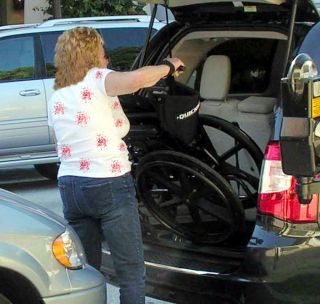

She helps her husband. Who attends to her needs?
If you're worn out, at your wit’s end and barely recognize yourself anymore, you're probably caring for a seriously ill spouse or parent. And you're not alone in your condition. Fortunately, after decades of blindness to your plight, caregiver challenges are coming to the forefront of our awareness. Leading the way, one caregiver support group, The Well Spouse Association, (a peer-to-peer non-disease specific support group) crafted this slogan: “When One is Sick…Two Need Help”.
Family caregiving is one of the most challenging and stressful roles a person is ever asked to undertake. While a few families strengthen under such adversity, even the most stable ones disintegrate without good direction. Although no two situations are alike, certain fears, worries, and concerns are universal for caregivers. These tend to center on money, decision making, hygiene, disrespectful treatment, family involvement, communication, intimacy, and strong emotions. Unfortunately, one of the most serious concerns, self care, often doesn’t make the list. Since caregivers neglect themselves, they need specific direction on how to manage their endless and extreme challenges while keeping themselves afloat. To understand their plight better, consider the following.
What is caregiving like? Remember being blindfolded and spun around the first time you played “Pin the Tail on the Donkey”? It’s pretty scary stuff being blinded and disoriented in a strange room - floundering about having no idea of where you are or where you’re going. You’re unfamiliar with the room, so you’re not sure what obstacles might be there, let alone where they might be. Since you’ve never played before, you aren’t quite sure what’s expected of you. It’s really quite unsettling. People are watching and evaluating your every move. Some might be mean and trip or push you - because that’s just who they are. Others might unintentionally do things that distract you, causing you to falter. Others might try to be helpful. They might make a lot of noise to guide you. You might hear them say – go to the left, go forward, go right - but that makes it even harder to find and to keep your bearings. You may stumble and fall, but you do everything in your power to hold onto that tail – the one with the dangerous pin sticking out of it. You wish this would just hurry up and be over!
That’s what caregiving is like – except the stakes are much higher and there isn’t a nice prize at the end.
But remember that a nice thing happened when you played Pin the Tail on the Donkey? Somebody came along and took your hand - and they led you to where you needed to be. Remember how that felt? You were no longer alone. Somebody remembered what it was like when they first entered the game - and they understood what you were going through. Suddenly you felt safer and everything felt better with this reassurance, guidance and direction. My book provides that same reassurance, guidance and direction for caregivers too. As a therapist, I worked with many caregivers, and was a long-term caregiver myself. From these varied experiences, 7 relief strategies were developed.
Granting permission for self care is the hardest task for caregivers to accept. You probably find that you are not an exception to this statement. What my caregiver clients discovered is that while they couldn’t or wouldn’t do it for themselves, they would do it to be better caregivers. Fortunately, the reason you decide to take care of yourself doesn’t matter - as long as you do it! Below are the seven strategies my caregiver clients devised based on their finances and freedom. Let their creative ideas inspire you.
1. Take breaks – short or long. Tina’s husband, Tom, suffers from dementia. Giving him loving care totally drains her. To recover, she takes a month-long visit to her family in Argentina. She tells friends and family that “if Tom dies while I’m away, don’t call me. Just put him on ice and I’ll take care of it when I get home." And she's serious! In order to protect her own health, she’s willing to risk criticism.
2. Do simple things and keep life simple. Cathy doesn't have much money or a car, so she takes relaxing walks in her neighborhood. She enjoys "inner" vacations as she chants, meditates, reads and does affirmations while her husband, Craig, sleeps. She escapes into herself in healthy ways. If the house isn't perfect for visitors, she says they can clean it themselves! Children and grandchildren descend on the house expecting to be entertained and fed, but if they don't bring and prepare their own food, they don't get to eat.
3. Take advantage of what’s in your neighborhood. Susan’s husband, Sam, is dying of cancer. She does “shop therapy” to get herself out of the house and into the havens that beautiful shopping malls provide. Sometimes just buying something at your neighborhood flea market or dollar store uplifts you because acquiring something new creates the feeling that there is a future. Neighborhood churches provide another free source of uplifting beauty and respite.
4. Stay socially involved. This is the self-care method Mary uses while Mark is dying of Parkinson’s. Mark is able to care for himself long enough for her to have lunch with friends, so she does this despite criticism from neighbors. If she doesn’t attend to her social life now, she won’t have one after he dies. She is simply preparing for her future.
5. Get help and enjoy your friends. Fran, a teacher, cares for Frank who is dying of emphysema. She arranges to have one of their children stay with him one Saturday a month, and one evening a month, so she can go out with co-workers. She shares immediate concerns with co-workers during class breaks, rather than burying her angst.
6. Have fun – get rest. Joe has been struggling with Parkinson’s for many years. Jean arranges for a neighbor to stay with him while she goes to a jazz club one night every week. She also has someone come for one overnight each week so she can take a sleeping pill and get a good night’s sleep.
7. Know that the sick person’s journey and your journey are not one and the same. You’ve got different things for which to prepare, so don’t get lost on their path. Don’t be afraid to ask for help. Whether caring for your husband, wife or parent, take the hand held out to guide you on your journey with strategies, tools, and resources in The Caregiving Wife’s Handbook. Check back for more articles with valuable caregiver tips and tools.



